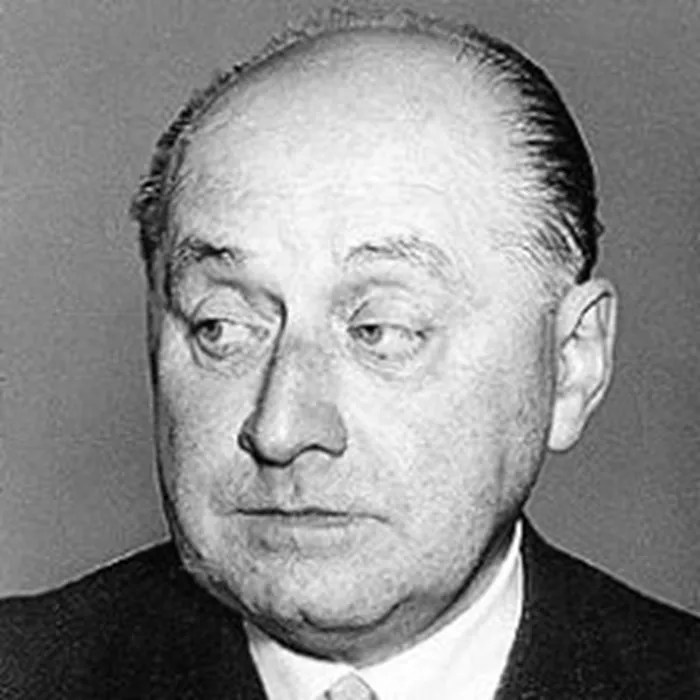
Gottfried Benn (1886-1956) was a prominent German poet, essayist, and physician whose work spanned the early 20th century. Known for his radical themes and complex style, Benn’s writing delved into subjects of existential angst, alienation, and the darker aspects of human nature, making him a central figure in the Expressionist movement. His influence is seen across modern poetry and literary criticism.
Gottfried Benn Biography
Gottfried Benn was born on May 2, 1886, in Mansfeld, Germany, to a Protestant family. He initially pursued a career in medicine, studying at the University of Berlin and later practicing as a doctor. Despite his scientific background, Benn’s intellectual curiosity led him to a profound exploration of literature and philosophy, and his writing career began in the early 1910s.
Benn’s early work was influenced by the German Expressionist movement, which sought to break from the traditional and embrace a more fragmented, emotional approach to human experience. His first major collection, Morgue und andere Gedichte (1921), shocked the public with its raw depictions of decay, disease, and death, reflecting the disillusionment of post-World War I Europe. The stark imagery and unflinching look at the human condition set him apart from his contemporaries.
His personal life, too, was filled with complexities. Benn’s marriage to actress and writer Emmy Hennings was troubled, and his personal isolation often seeped into his work. Throughout the 1920s and 1930s, Benn’s poetry became increasingly introspective, delving into themes of the individual’s struggle against societal and spiritual constraints. However, his relationship with political ideologies was contentious—while initially supporting National Socialism, Benn distanced himself from the regime, and his views became more ambiguous in the years that followed.
After World War II, Benn returned to writing, albeit in a more subdued manner. His postwar poetry showed a shift from the rebellious tone of his earlier years, focusing instead on introspection and the search for meaning in an era of destruction and rebuilding. Benn’s reputation as a poet grew internationally, and he became a prominent figure in postwar German literature. He died in Berlin on July 7, 1956.
Benn’s poetic works are often noted for their intellectual depth and brutal honesty. His dual identity as a physician and a poet allowed him to explore the human body and psyche with an almost clinical precision, while his existential themes and stark depictions of modern life earned him a lasting place in the literary canon.
Gottfried Benn Poems
Gottfried Benn Quotes
1. “The poet’s role is to bring the dark truths of the world into thelight.”
2. “Language is the only medium through which we can understand the world and ourselves.”
3. “Life is a disease, a constant confrontation with decay.”
4. “There is no art, no beauty in nature. Only in the interpretation oof human eyes.
5. “We live in the paradox of knowing we will die, and yet we continue to hope for meaning.”
6. “The body is an illness, the soul is its doctor.”
7. “My poetry is not about beauty, it is about the horror of existence.
8. “We are all condemned to live, and condemned to find meeaning in a meaningless world.”
9. “The universe is indifferent, and in that indifferencelies both freedom and terror.”
10. “I do not seek to comfort, I seek to disturb.”
Gottfried Benn Facts
1. Benn was born in 1886 in Mansfeld, Germany, and grew up in a religious family.
2. He studied medicine at the University of Berlin, and his medical career influenced his poetry.
3. His first major poetry collection, Morgue und andere Gedicchte, was published in 1921.
4. Benn was associated with the Expressionist movement, but his work evolved into Modernism.
5. He initially supported the National Socialist regime in Gerrmany but later distanced himself.
6. He was married to actress and writer Emmy Hennings, buttheir relationship was strained.
7. Benn was influenced by philosophers such as Nietzsche, annd his poetry reflects themes of existentialism.
8. He was an avid critic of both traditional and contemporaryGerman society.
9. His post-World War Il poetry shifted toward themes of renewal and introspection.
10. Gottfried Benn died in Berlin in 1956, leaving behind a body of work that continues to influence poets and scholars today.
